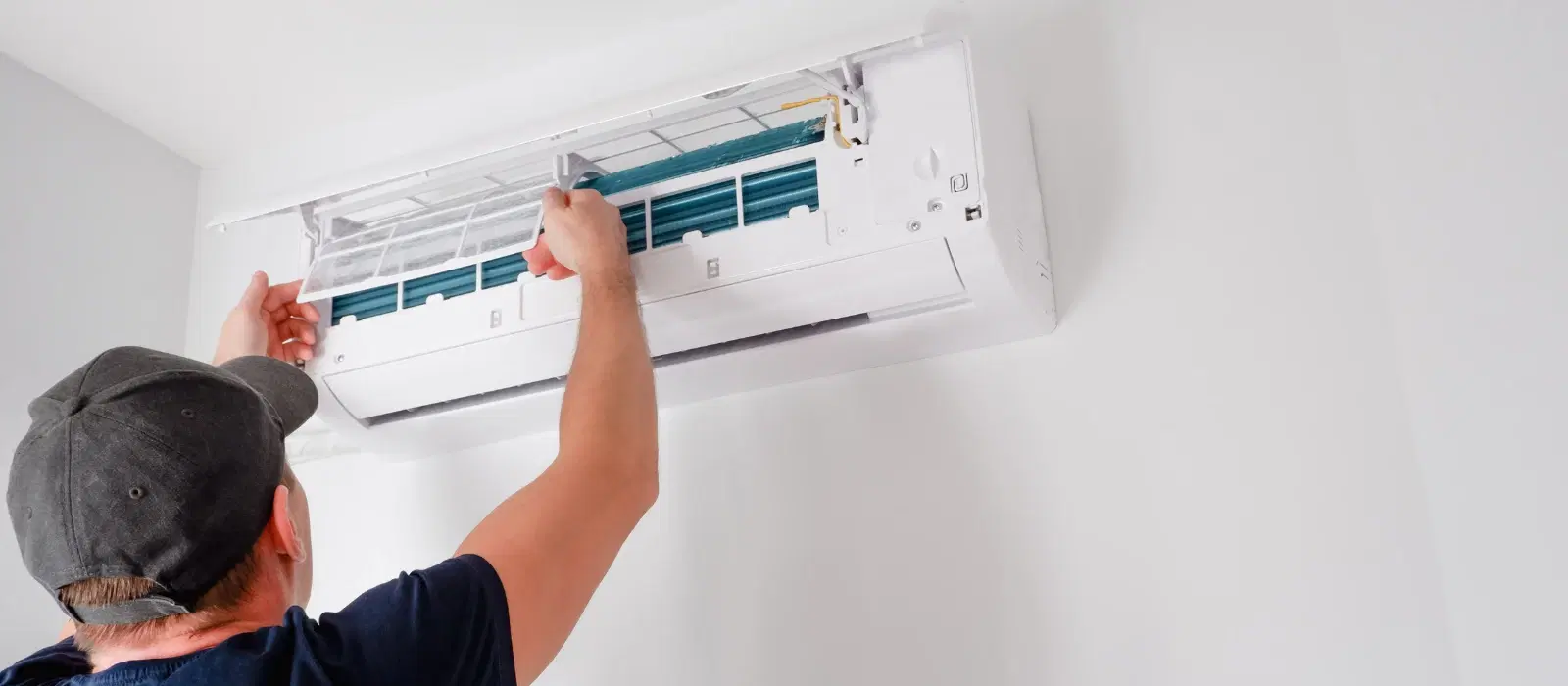
Home Appliances
•06 min read
When your air conditioner is not cooling effectively, it can feel like you're battling the heat without relief. A fully functional AC is essential, especially as temperatures rise, and facing issues such as poor cooling can be incredibly frustrating. In this guide, you'll learn practical air conditioner troubleshooting steps while understanding the air conditioner not cooling reasons and how regular maintenance, like scheduling professional services, can help sustain comfort at home.
To appreciate the troubleshooting process, it helps to know the basics of how an air conditioner works. The air conditioner draws warm indoor air through filters, cools it using refrigerant that circulates between key components such as the compressor, condenser, and evaporator, and then fans the cooled air back into your space. A seamless interaction between these parts ensures your comfort, and any disruption can result in common AC problems like poor cooling.
Air filters play a crucial role by trapping dust and debris; however, when they become clogged, airflow is significantly restricted, leading to reduced cooling efficiency. To address this, start by inspecting your filters and clean or replace them as needed. This simple step often resolves issues of AC not blowing cold air and restores overall performance.
Refrigerant is the lifeblood of the cooling process, absorbing heat and exchanging it outside your home. If you notice hissing sounds near your unit or observe ice buildup, you might be witnessing a refrigerant leak. Given that these issues require professional expertise, it's best to contact a qualified technician to address potential refrigerant leaks safely and effectively.
Your thermostat controls the operation of your AC unit. An incorrectly set or malfunctioning thermostat can mislead the unit to deliver insufficient cooling. Always verify the settings, replace batteries if needed, and recalibrate the device. This step ensures that your system reflects your temperature preferences accurately.
The external condenser unit expels heat, and accumulated debris or dirt can obstruct this function. Inspect the unit regularly, and if you spot any blockages, gently remove the debris. This practice not only helps address why your AC is not cooling effectively but also enhances the longevity of your equipment.
Issues like tripped circuit breakers or blown fuses can halt the operation of your AC. When experiencing these interruptions, check your circuit breakers and fuses. If the problem persists, consider calling an electrician to handle more complex electrical faults that might result in AC unit issues.
Expert Tip: Routine inspection and maintenance of air filters, refrigerant levels, and electrical components can prevent many of the common AC problems and improve overall performance.
The evaporator coils are critical as they absorb heat from the indoor air. Signs like frozen or dirty coils indicate a blockage in effective heat absorption, which compromises cooling. Carefully inspect these coils; if cleaning doesn't work, professional maintenance might be necessary.
The compressor pumps refrigerant through your system. Noisy operation or failure of the AC to start could be due to compressor issues. Such problems require a detailed professional review since premature compressor failure can affect both the performance and life of your AC unit.
Efficient cooling relies on the unobstructed flow of air through your ductwork. Inspect your ducts for leaks or blockages, and seal any imperfections you may find. Ensuring that your ductwork is intact helps in maintaining cooler indoor temperatures and prevents home cooling problems.
Regular maintenance is the key to avoiding recurring issues with your air conditioner. A routine checklist including cleaning filters, inspecting coils, and checking refrigerant levels keeps your system running smoothly. In addition, professional maintenance services offer a comprehensive check-up, ensuring that minor issues are addressed before they escalate into bigger problems.
Opting for scheduled maintenance not only helps resolve why your AC is not cooling but also safeguards future performance. Consider services that provide timely after-sales support, expert inspections, and repair tips, all creating a seamless experience with guaranteed comfort and efficiency.
While many troubleshooting steps can be performed at home, there are times when professional intervention is necessary. If you suspect refrigerant leaks, compressor issues, or serious electrical faults, it is prudent to seek expert assistance. Professional technicians not only bring specialized tools to diagnose and repair these problems but also offer guidance on proper air conditioner maintenance and prevention strategies.
This proactive approach ensures that your buyer journey remains hassle-free, optimising performance and extending the life of your system. With more energy-efficient solutions and professional support, you can enjoy reliable cooling with peace of mind.
The top reasons include dirty air filters, refrigerant leaks, thermostat issues, blocked condenser units, and electrical problems.
Remove the filters, vacuum off dust, wash with mild soap and water, allow them to dry completely before reinserting them into the unit.
If you encounter refrigerant leaks, persistent compressor issues, or electrical faults that do not resolve with basic troubleshooting, professional assistance is recommended.
Yes, regular maintenance, such as cleaning filters and checking system components, can greatly reduce the chance of encountering air conditioner repair tips issues and improve overall efficiency.
In summary, understanding the inner workings of your air conditioner and identifying common AC problems like dirty filters, refrigerant leaks, and thermostat glitches are essential steps in troubleshooting why your AC is not working as expected. Regular preventive measures, combined with professional maintenance services, ensure that you remain cool even on the hottest days. By following these guidelines, you'll gain confidence in managing your home cooling requirements effectively, leveraging expert advice and solutions whenever needed.
Remember, a well-maintained air conditioner not only enhances comfort but also improves energy efficiency, contributing to a smarter, more energy-conscious home environment.